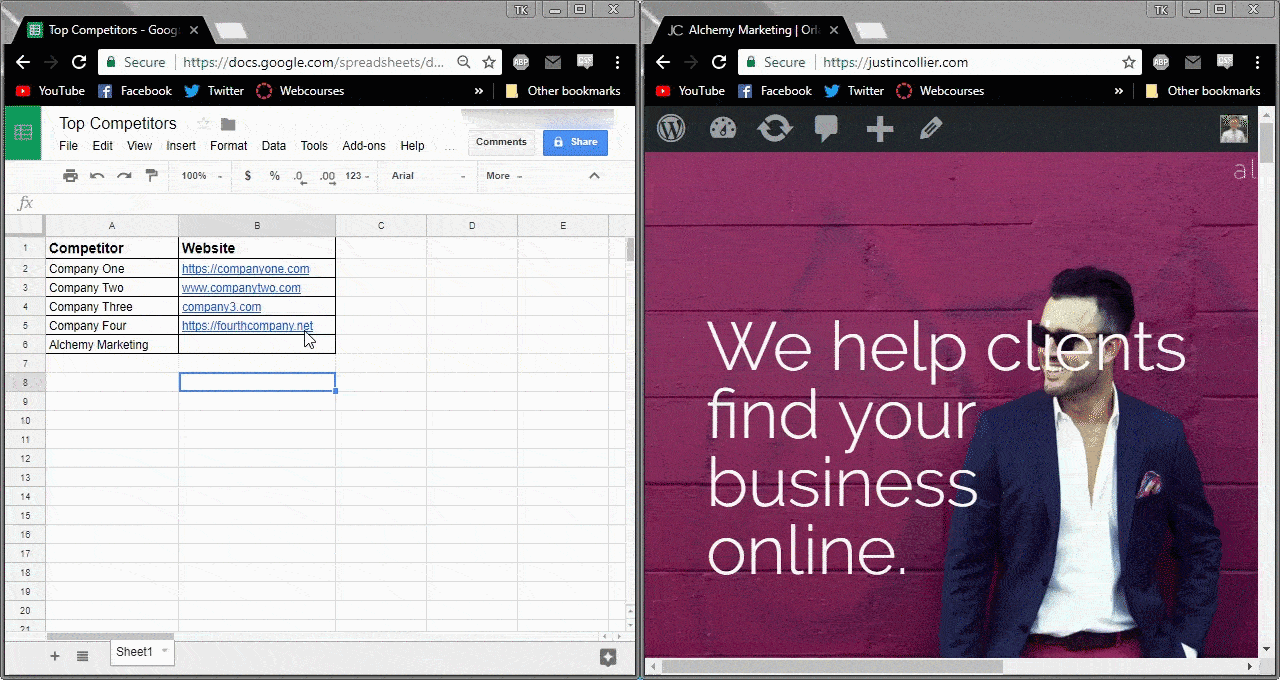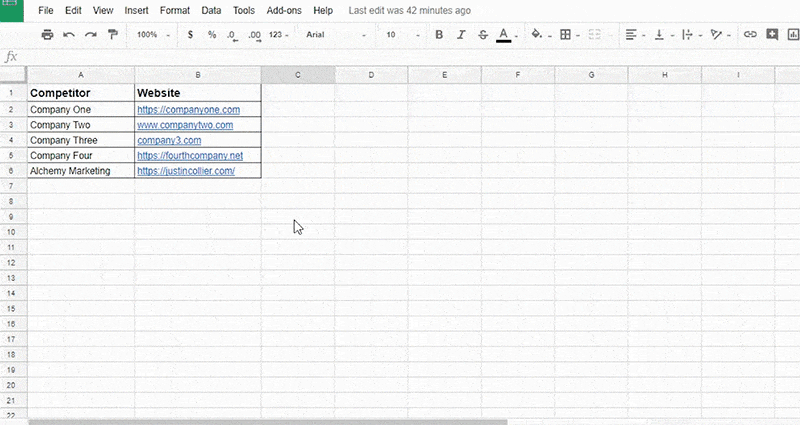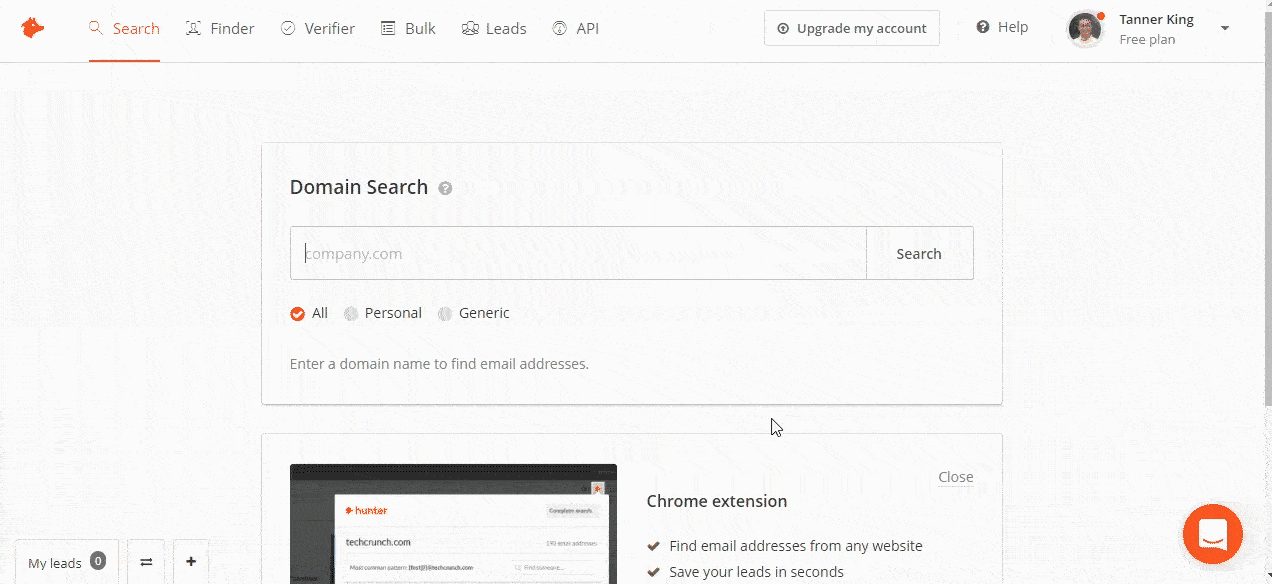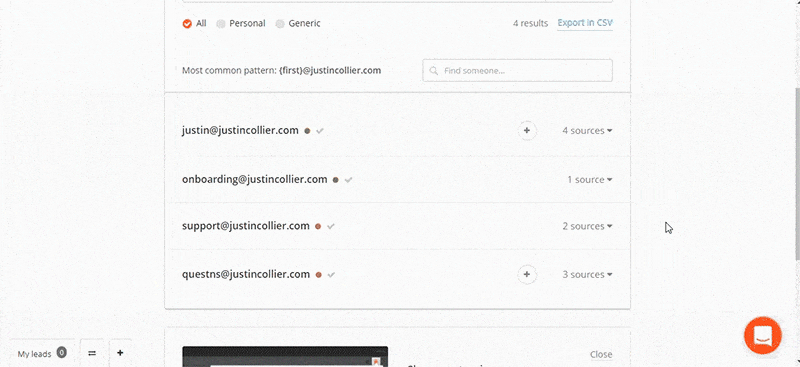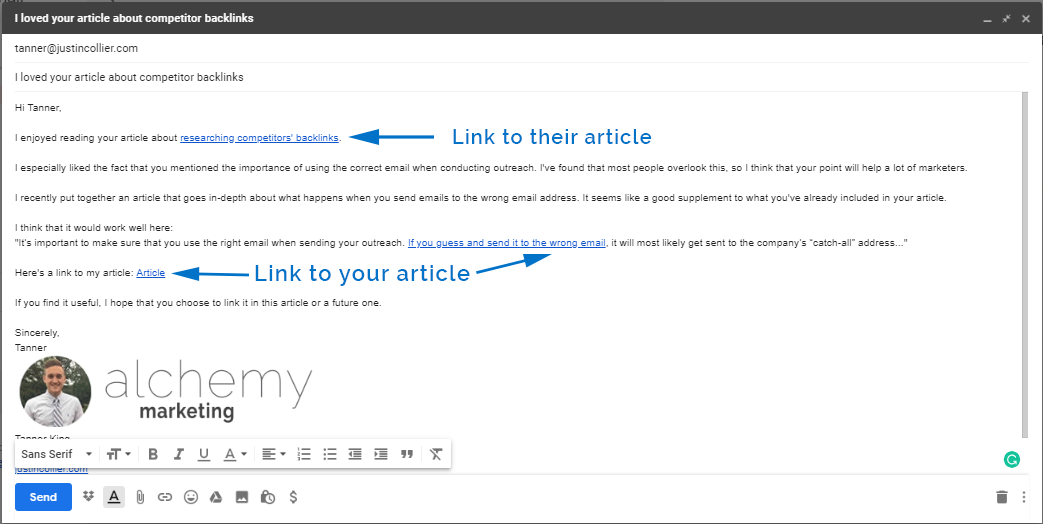Research and Copy Competitor Backlinks for SEO
Getting links to your website from other websites is a great way to show authority in the eyes of Google. It can be seen as a sort-of unspoken endorsement between websites.
So, finding where your competitors are getting links to their websites may give you insights on where also you can get links to your website.
This tutorial will teach you how to find your competitors’ backlinks and give tips on how to outreach to the site owners to ask for a link of your own.
How to Find Competitor Backlinks
While many tools exist for this purpose, we recommend using Moz’s Open Site Explorer which is a part of their Moz Pro subscription.
I’ll be using this tool for the purposes of this tutorial.
Start with your Top Five Competitors
Unsurprisingly, an essential part of researching competitor backlinks is knowing who your competition is.
Make a list of your top competitors that you’re going to research, including their company name and URL.
When grabbing their URL, open their site in a separate tab and copy/paste it into your list. This will mitigate typos and errors such as typing in “www.” when their website actually doesn’t have that.
Next, navigate to Open Site Explorer and copy/paste one of the URLs from your spreadsheet into the search bar. Click Search.
Rinse and repeat this process for all of your competitors, checking which links seem attainable and important enough to pursue based on the Page Authority (PA) and Domain Authority (DA).
Use Open Site Explorer’s Additional Features
How to Prioritize the Best Backlinks
There they are – all of those precious links. You want them, but which ones are the most important and valuable?
Here is an example of a results page in Moz Open Site Explorer.
Page Authority
First, you want to sort by Page Authority (PA) in Open Site Explorer. This metric determines how likely the page is to rank in search queries. The higher the result, the more likely that your link will get seen and potentially clicked on.
Type of Website
Different types of websites may require different strategies for acquiring a link. The next step in this process is figuring out what type of website it is. Below are some examples of the different types of websites that you’ll find.
Depending on the objective of the site, outreach may or may not be necessary to gain a link.
Citations and Directories
These websites generally accept almost any business that wants to be listed. They typically just require the business to submit their information. So, there’s no need to reach out. Click here for a comprehensive guide on building citations and directories.
Blog/Article
If the link comes from an article or blog post, check to see if the webpage is either promoting the company specifically or if they are just mentioned in it.
If they’re just mentioned, consider reaching out to the author to see if they can fit you in the article or blog post as well. Offer assistance if they need any expert advice on your industry or include a fact or idea that their article missed and you think would be helpful.
If you help them out or add genuinely valuable content, they’ll be more likely to link to you in existing or future articles.
News Article
News articles are much less common and typically requires your company or industry to have news value.
If your competitor was quoted in the article as an expert and the article was already posted, there’s not a great chance that you can get a link to that specific article. The journalist is most likely already working on their next story.
However, you can always reach out to the journalist to let them know that you would love to help give expert testimony if anything else comes up.
How to Find the Right Email for Outreach
Now that you’ve found websites that are linking to your competitors, we want to understand how to reach out to those websites. We’ll start by learning how to find the email of the webmaster or blog author you are trying to reach.
Unfortunately for us, some people, especially the “VIP’s” of the industry, don’t want their emails out on the web for all to see.
It’s important to make sure that you use the right email when sending your outreach. If you guess and send it to the wrong email, it will most likely get sent to the company’s “catch-all” address and they’ll know that you didn’t do your research well enough to actually find the right address. This most likely won’t lead to a response.
When I can’t find the email manually, I use hunter.io to see if I just missed it or to make an educated guess.
How to use Hunter.io
Step 1: Enter the URL of the site you want to contact
Step 2: Check for the email
If the author’s email has been found on the web, it will be listed with a confidence rating and how many times it has been found. If the author isn’t listed, it will give you the best guess as to how the site structures its emails. (i.e. {first}@alchemymarketing.com)
As long as you know the author’s full name, you can search and it will give you its best guess for their email based on the general structure.
How to Craft a Good Outreach Email
Alright, so you have the author’s email address. How do you actually reach out to them? Here are a few best practices to keep in mind as you draft your email.
They Don’t Have to Link to You
It’s important to remember that this person doesn’t owe you anything. Even if you’re adding value, they’re still doing you a favor.
Keep this in mind when you write your email. Keep it conversational, empathetic, and interesting.
Add Value by Providing a Resource
Chances are, if you just reach out and ask for a link without offering anything in return, your email will be sent to the deleted folder pretty quickly.
However, if you create a resource that will help them and their audience, they’ll be much more likely to spare a link. Here are some examples of valuable resources:
- Infographic
- How to/Tutorial
- Frequently Asked Questions
- Blog post or article
As long as these resources are tailored to your specific niche, they’re going to greatly increase your chances of gaining a link.
Pro-tip: Create the resource before sending the email. You don’t want to show up empty-handed and promise that you’ll get to it eventually. Show them that you’ve already done your end of the deal. You mean business.
Build a Relationship
Are you more likely to help out a stranger or a friend? Luckily, this isn’t an episode of the TV show “What Would You Do?” so we can be honest and say that we’re much more prone to helping people that we actually know.
If there’s an industry VIP that you really want to gain a link from, start off by engaging with them on their blog or social media. That way, they’ll have an idea of who you are and what you do before you make the ask.
Keep it Short
We’re all busy and we all love to tell each other how busy we are. This person doesn’t have the time or energy to read a drawn-out email.
Simply let them know what value you can add to their piece and ask that they link to you in return.
Easy peasy.
Put it all Together
You’re basically an outreach expert at this point. So, let’s see what it looks like in practice. Here I am emailing myself that I liked my own article, which I do on a regular basis.
Notice that I didn’t just rewrite the author’s article. If I did, they definitely wouldn’t want to link to it. Instead, I found a section that isn’t very in-depth, the part about sending an email to the wrong address, and went more in-depth about it. The information and value that I’m providing are supplemental to the article.
